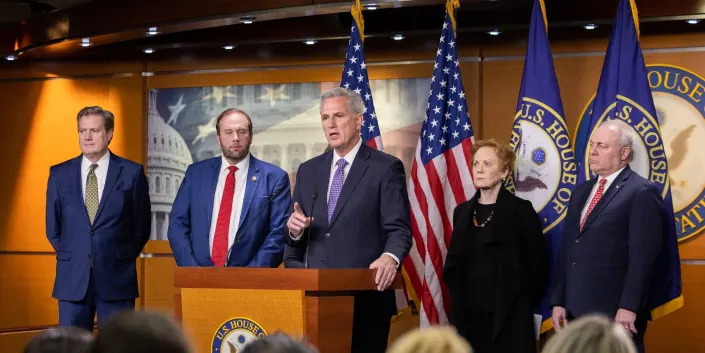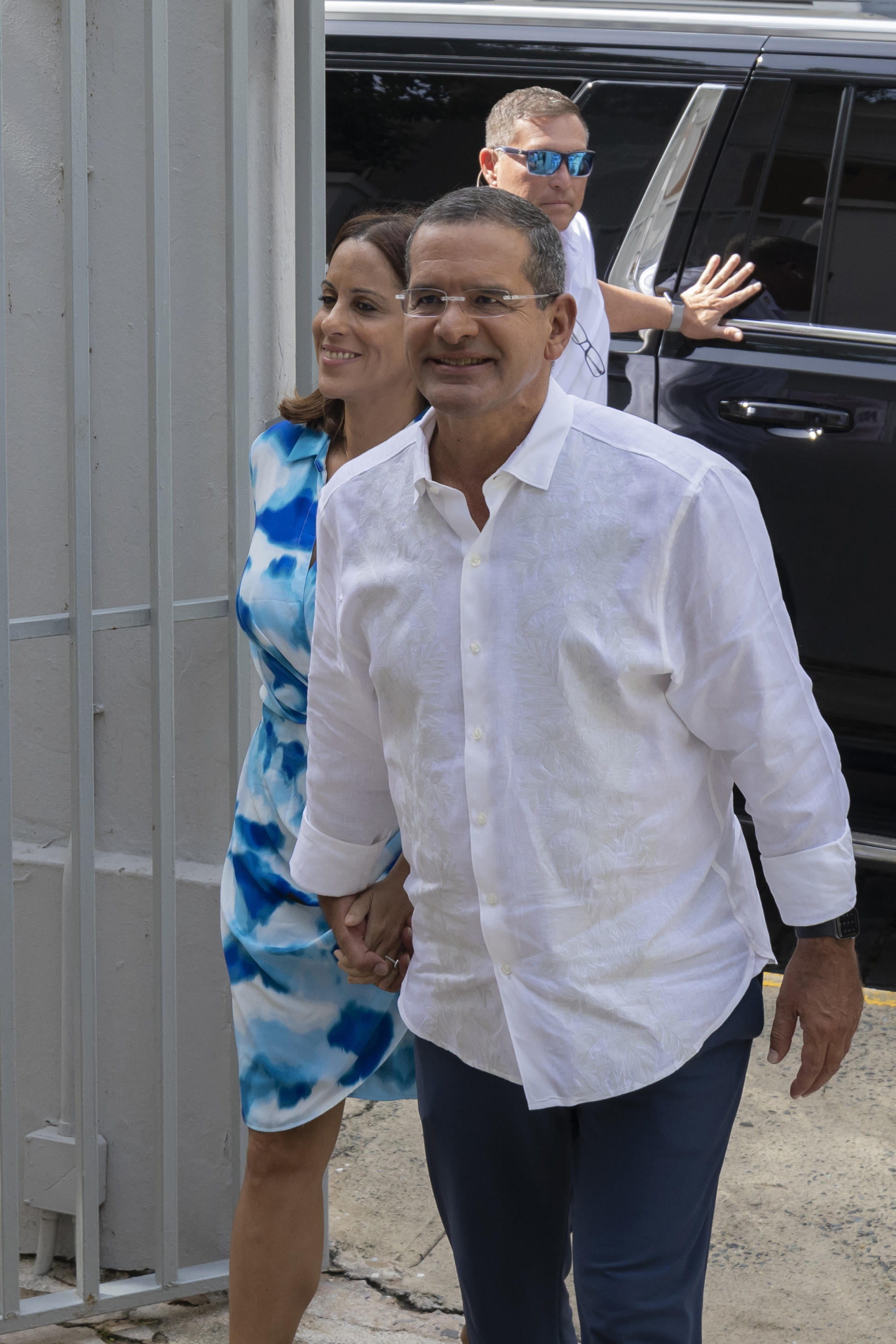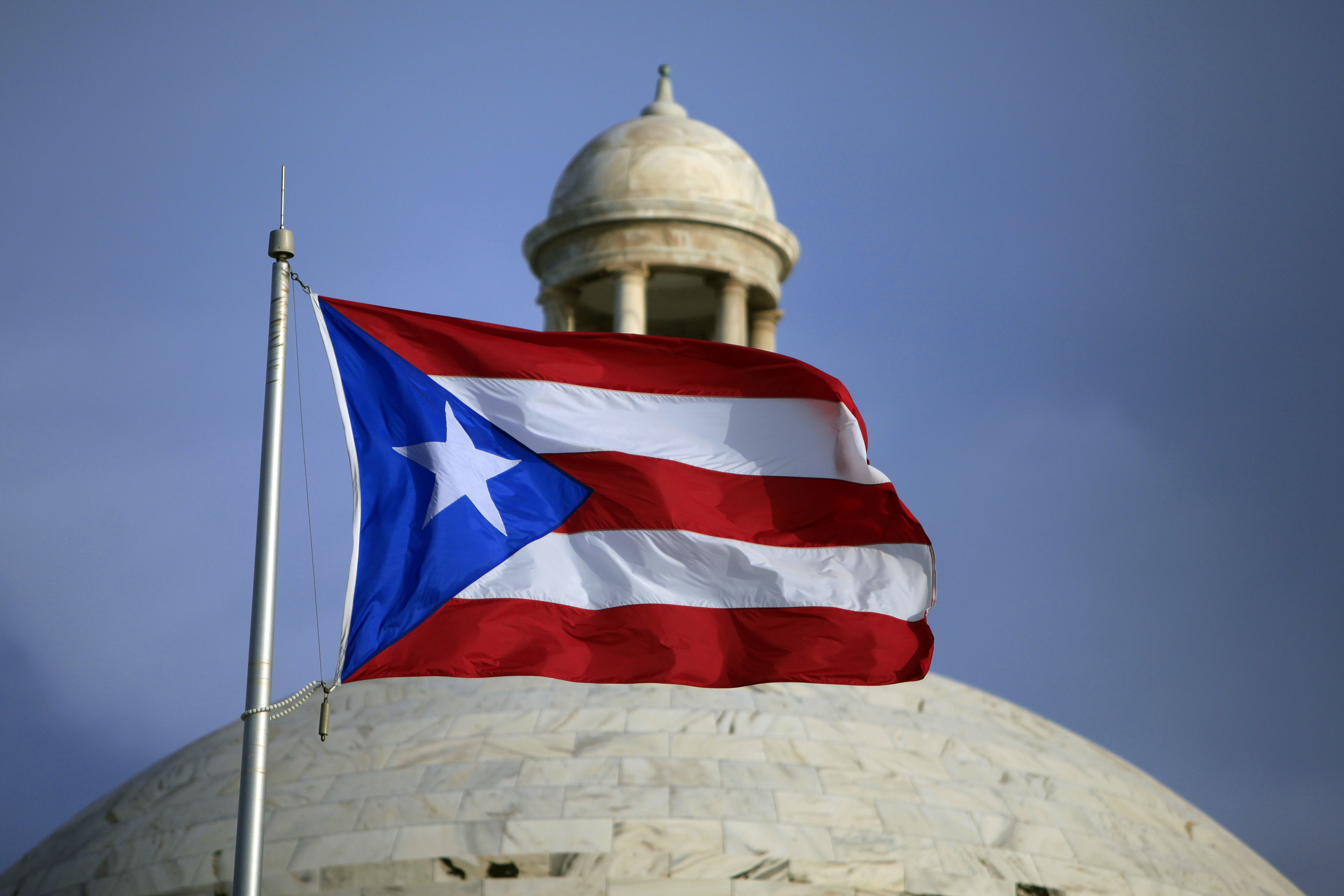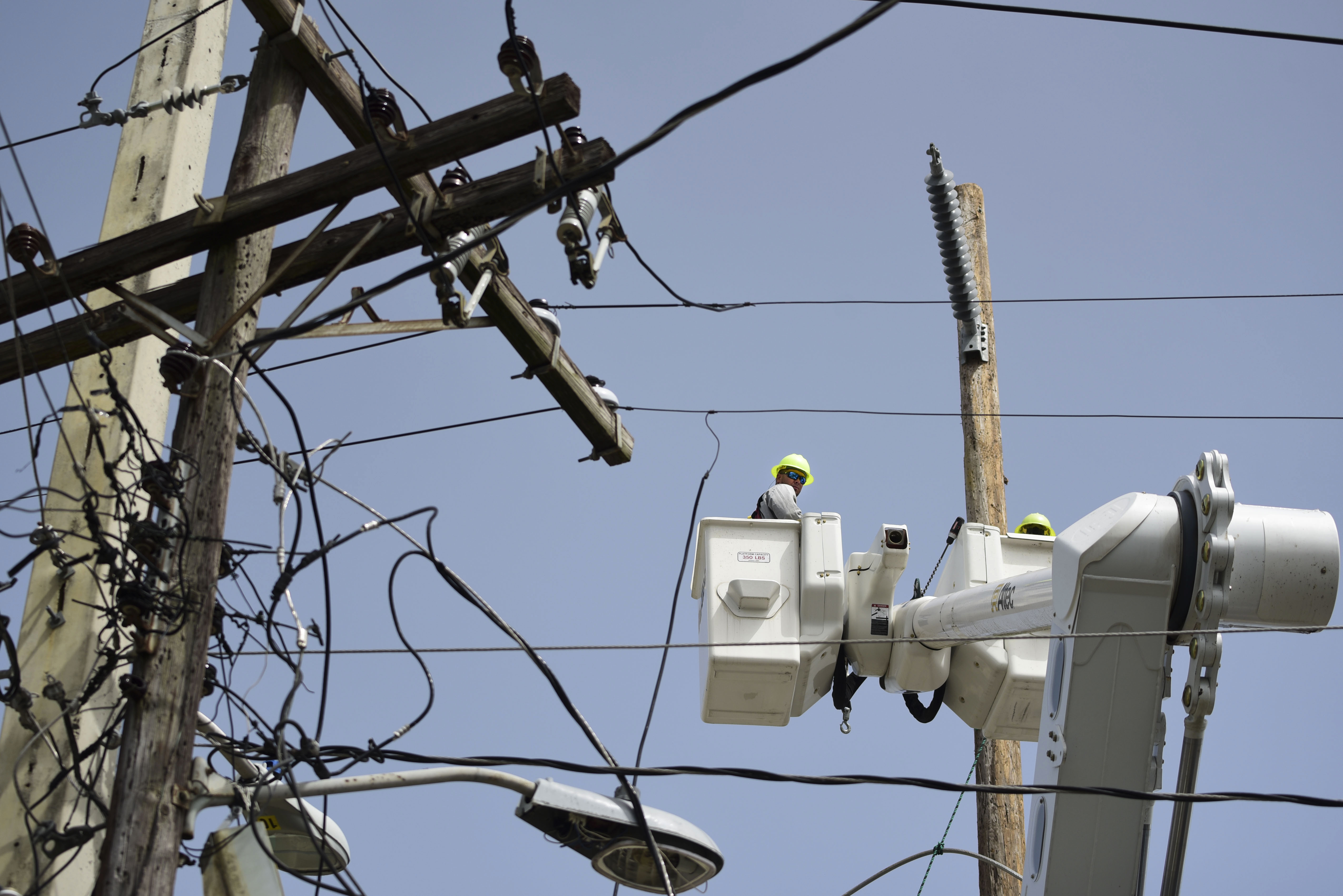What's behind calls for Puerto Rico statehood? Here are 4 things to know.

Nicole Acevedo
Wed, March 3, 2021,
Rep. Darren Soto, D-Fla., and Rep. Jenniffer Gonzalez, Puerto Rico's nonvoting member of Congress and a Republican, introduced new legislation Tuesday to make the U.S. territory a state.
The Puerto Rico Statehood Admissions Act seeks to establish "a framework for admission, including a presidential proclamation upon its passage, a ratification vote, the election of U.S. senators and representatives and the continuity of laws, government, and obligations," Soto said at a news conference.
Why now
The bill comes amid renewed efforts from pro-statehood Puerto Ricans to pressure Congress after passage of a nonbinding referendum in November that directly asked voters whether Puerto Rico should immediately be admitted as a state. With nearly 55 percent voter turnout, about 53 percent of Puerto Ricans who voted favored statehood while 47 percent rejected it, according to Puerto Rico's Elections Commission.
The new legislation was introduced Tuesday on the 104th anniversary of the Jones Act, the first piece of legislation that opened a pathway for Puerto Ricans to earn U.S. citizenship.
"But still it's not a first-class citizenship," Gonzalez, who represents 3.2 million Puerto Ricans on the island, said. "We cannot vote for our commander-in-chief, we do not have four members of Congress, and yet Congress has all power over us."
The bill has the support of at least 49 House members, 13 Republicans and 36 Democrats, according to Gonzalez. Sen. Martin Heinrich, D-N.M., is expected to eventually introduce a version of the bill in the Senate.
Why statehood
Puerto Ricans living on the island are U.S. citizens who are unable to vote for president. They don't pay federal income taxes, since they don't have voting representation in Congress. But they do pay payroll taxes, helping fund federal programs such as Medicaid, Supplemental Security Income, the Supplemental Nutrition Assistance Program and the Earned Income Tax Credit, which often serve as lifelines in a territory where 44 percent of the population lives in poverty. But as a U.S. territory, Puerto Rico has unequal access to these programs compared to states.
While similar versions of the Soto-Gonzalez statehood bill have unsuccessfully been introduced in Congress since at least 2015, the newest version is different because it seeks to mirror the process used to bring Hawaii and Alaska into the union, said Soto.
Soto said there's a renewed sense of urgency to advocate for statehood as Puerto Rico works to resolve the compounding crises that have been heaped on the island over the last few years.
The island is still recovering from Hurricane Maria in 2017 — the deadliest U.S.-based natural disaster in 100 years, which led to the deaths of at least 2,975 people — while simultaneously working to get out of the largest municipal bankruptcy in U.S. history and survive the pandemic.
An opposing bill wants more options
The statehood bill was met with opposition from four Puerto Rican advocacy groups Tuesday. They bought an ad in The New York Times calling out statehood supporters such as Puerto Rico Gov. Pedro Pierluisi for their use of "cherry-picked statistics."
"If you're only listening to the governor of Puerto Rico, you're not even getting half the story," the ad reads. "True equity can only be achieved when Puerto Rico is free to decide its own destiny, armed with information and a full understanding of the entire range of nonterritorial political status possibilities available."
The four groups — Vamos Puerto Rico, Boricuas Unidos in the Diaspora, Diaspora in Resistance and Our Revolution Puerto Rico — argue in the ad that a bill that Reps. Nydia Velazquez and Alexandria Ocasio-Cortez, both Puerto Rican Democrats from New York, are seeking to reintroduce in the House is a better option to resolving Puerto Rico's territorial status.
Related: The election on the island follows the historic protests following the scandal that led to Gov. Ricardo Rosselló's resignation.
The Puerto Rico Self-Determination Act of 2020 initially proposed creating a "status convention" made up of delegates elected by Puerto Rican voters who would come up with a long-term solution for the island’s territorial status — whether it be statehood, independence, a free association or any option other than the current territorial arrangement.
During Tuesday's news conference, Pierluisi said that proposals advocating for "a new process with other options, because some didn't like the result, show a lack of respect to the people's vote."
Puerto Rico has held a few other referendums in recent years.
In a 2017 plebiscite, 97 percent of those who voted favored statehood but opposition parties boycotted the vote, resulting in a record low turnout of 23 percent. In another 2012 plebiscite, 61 percent of voters sided with statehood, but that referendum was also mired in controversy over the way the choices for voters were phrased.
Independence didn't have 'fair chance'
Senate Majority Leader Chuck Schumer, D-N.Y., recently said that Puerto Rico's debate over statehood demonstrates that Puerto Ricans are divided on issues surrounding their territorial status.
Most Puerto Ricans favor statehood or its current territorial status. Historically, the island's chances to meaningfully explore independence as an option were often met with roadblocks.
A 1948 Gag Law made it illegal for Puerto Ricans on the island to display the Puerto Rican flag, and a government-sanctioned surveillance program known as "las carpetas," (the binders) illegally tracked Puerto Ricans advocating for independence for about 40 years. Especially during the Cold War, Puerto Rico was of strategic importance to the U.S. and the nation's military.
"There was not a fair chance for Puerto Ricans to explore independence as an option, because both the government of Puerto Rico and the United States government did not allow that option to be on the table," Puerto Rican photographer and journalist Chris Gregory-Rivera, whose six years of reporting on "las carpetas" is also being showcased in an exhibition in Abrons Arts Center in New York City, previously told NBC News.
Related: The divide reflects the ongoing debate about how to best vote on the U.S. territory's future.
"What does that do to a country's ability to participate in civil society and self-determine? As we're talking about another referendum, taking statehood to Congress and a myriad of legal issues about things that have happened over the last few years, you can't ignore that part of the situation that we're in now has links to this moment in history," Gregory-Rivera said.
Pro-independence groups organized counterprotests in Washington on Tuesday as lawmakers announced their pro-statehood bill.
Monday was the 67th anniversary of an armed attack on Congress by four Puerto Rican nationalists who fired on the House as it was in session. Five members of Congress were hurt and recovered; the attackers' prison sentences were commuted in the late 1970s by President Jimmy Carter.
The attack came two years after the 1952 agreement that made the island a commonwealth.
"The political purpose of that military attack was to draw the world's attention to the U.S. colonial situation in Puerto Rico and the repression against the Puerto Rican independence movement," Ana Lopez of the Boricua Independence Front said in a statement.


















